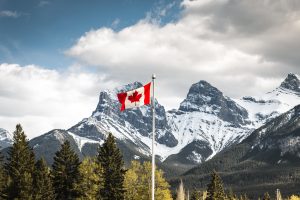7.2 Substance Use Laws in Canada
Take a moment and reflect on the laws in Canada. Whether you realize it or not, laws in Canada impact citizens on a daily basis, from paying for groceries to driving on the right-hand side of the road, to education and health care.
- Research what law is.
- Research what regulation is.
- Research what a policy is.
- How do laws, regulations, and policies impact you? Please provide an example.

There are also laws that control the access, use, and distribution of substances. The Controlled Drug and Substances Act (CDSA) is the law responsible for overseeing Schedule I-VIII substances, which include stimulants, opioids, depressants, benzodiazepines, and steroids as well as their derivatives (1). The Director General’s Office manages the CDSA and its Regulations and the Office of Controlled Substances develops legislation, regulations, policies and operations that support the control of illicit drugs and other substances (2).
Who decides what substances belong to illicit or licit categories? Who decides when something is a crime and when people are sent to prison? Who creates and passes these laws? Employees of Health Canada, experts in the field, members of RCMP, and elected officials and their staff form committees to review substances and the laws associated with them. Canada is also a member of the UN Office of Drug and Crime (UNODC), which guides Canadian laws and policies (3). To pass a law, the House of Commons (elected, lower Chamber), the Senate (appointed, upper Chamber), and the Monarch (Head of State, who is represented by the Governor-General in Canada) work together.
Food for Thought
- Have you ever thought about the people who create and pass laws? Do they represent all the diverse groups in Canada?
- Have you ever met your Member of Parliament who is responsible for addressing your concerns? Why or why not?
- Have you ever thought about running for office? Why or why not?
- Go to the Government of Canada website and review the Members of Parliament. Do any mention substance use/mental health?
- Why do you think this is?

There are advocacy groups across Canada trying to make changes in the laws regarding substance use. From the larger groups like the Canadian Association of People who Use Drugs (CAPUD) and the Vancouver Area Network of Drug Users (VANDU) who have a long history in advocacy for supervised consumption sites and prescription opioid programs to smaller advocacy groups like the Halifax Substance Users Network (HalifaxSUN) and HaliFIX in Nova Scotia who have been working to promote overdose prevention through substance testing campaigns and sharing first-person stories of their substance use. There are grassroots efforts to move towards substance use laws and policies that reflect a harm reduction approach in Canada.
Some groups have had success in pilot projects. Please review the first opioid prescription models in Canada by clicking on the NAOMI and SALOME projects in Vancouver. While the evidence was clear that opioid prescription changed lives, these programs had a limited shelf-life.
Food For Thought
- Are there resources in your community that could support a safer approach to substance use?
- Is there a difference between urban and rural viewpoints when it comes to substance use? Can you find any examples of this?
- Research 3 media stories on substance use. What approaches to substances/substance use do these stories suggest?
- Compare and contrast. What did you learn?
- What is a focus on one approach to substance use and addiction?
Today, Canada’s policies that support a national harm reduction approach are piecemeal, and while there have been positive changes since 2015, including the legalization of cannabis and Health Canada approved supervised consumption sites (4), one of the issues facing people who use substances continues to be a punitive legal system that criminalizes substance use.
Attribution:
This Chapter is an adaptation of Exploring Substance Use in Canada by Julie Crouse is licensed under a Creative Commons Attribution-NonCommercial-ShareAlike 4.0 International License.
References
- Government of Canada. (2021a). Controlled substances. https://www.canada.ca/en/health-canada/services/health-concerns/controlled-substances-precursor-chemicals/controlled-substances.html
- Ibid.
- Ibid.
- Government of Canada. (2021b). Supervised consumption sites: Status of applications. https://www.canada.ca/en/health-canada/services/substance-use/supervised-consumption-sites/status-application.html#a3

